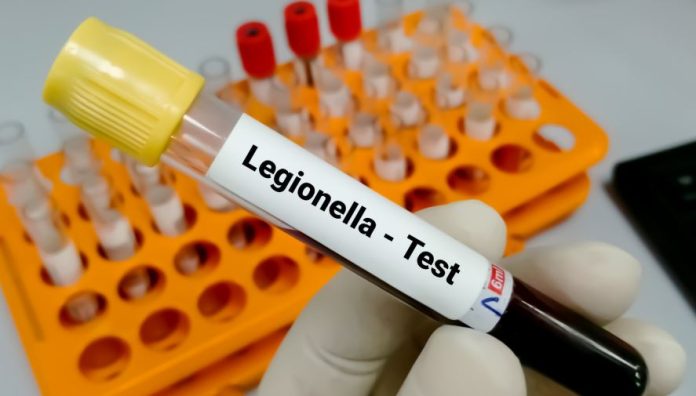Table of Contents
As a business owner in the UK, ensuring the health and safety of employees, customers, and visitors is not just good practice, it’s a legal obligation. Among your many duties, one of the most critical and often overlooked is the control of Legionella bacteria within your premises’ water systems.
Failure to manage this risk can have devastating consequences, including serious illness, heavy fines, and irreparable damage to your business’s reputation. Understanding your legal responsibilities surrounding Legionella control is therefore essential for compliance, safety, and peace of mind.
What Is Legionella and Why Is It Dangerous?

Legionella is a type of bacteria found naturally in freshwater environments such as rivers, lakes, and reservoirs. However, it becomes a health risk when it grows and spreads in man-made water systems, including:
- Hot and cold-water systems
- Cooling towers and evaporative condensers
- Spa pools, hot tubs, and decorative fountains
- Air conditioning and humidification systems
When water contaminated with Legionella is released in the form of tiny droplets (aerosols) and inhaled, it can cause Legionnaires’ disease, a severe form of pneumonia that can be fatal, particularly in the elderly or those with weakened immune systems.
Because the bacteria thrive in temperatures between 20°C and 45°C, any system that stores or circulates water within this range can pose a risk if not properly managed.
Your Legal Duties Under UK Law
Legionella control in the UK is governed by several key pieces of legislation and guidance documents. As a duty holder, employer, landlord, or facilities manager, you have a legal obligation to assess and control the risk of exposure to Legionella bacteria.
1. The Health and Safety at Work etc. Act 1974
This is the primary legislation covering workplace health and safety in the UK. It places a general duty of care on employers and those in control of premises to ensure, as far as is reasonably practicable, the health and safety of employees and others who may be affected by their activities.
In the context of Legionella, this means you must take reasonable steps to prevent or control the risk of exposure to the bacteria. Failure to do so can lead to enforcement action, prosecution, and significant fines.
2. The Control of Substances Hazardous to Health Regulations 2002 (COSHH)
Legionella bacteria are classified as a hazardous substance under COSHH. This legislation requires employers to:
- Identify hazardous substances that may pose a risk (in this case, Legionella)
- Assess the level of risk to employees and others.
- Implement measures to eliminate or control the risk.
- Regularly monitor, review, and record control measures.
This includes conducting a Legionella risk assessment, maintaining water systems safely, and keeping accurate documentation as proof of compliance.
3. The Management of Health and Safety at Work Regulations 1999
These regulations expand on the duties set out in the 1974 Act, requiring all employers to carry out risk assessments and put in place effective management systems to protect people from harm.
For Legionella, this means developing a written scheme of control that outlines how you will manage and monitor your water systems, including responsibilities, maintenance schedules, and record-keeping.
4. The HSE’s Approved Code of Practice (ACoP) L8 and HSG274
The HSE’s Approved Code of Practice L8: “Legionnaires’ disease – The control of Legionella bacteria in water systems” provides the authoritative guidance for compliance in the UK.
It applies to all employers, self-employed persons, and those in control of premises, regardless of size or industry. The document outlines a step-by-step approach to compliance, including:
- Identifying and assessing sources of risk.
- Implementing control measures.
- Appointing a competent “responsible person” to manage Legionella control.
- Keeping records of inspections, testing, and maintenance.
- Reviewing control measures regularly.
Following ACoP L8 is not mandatory, but it provides a recognised standard. If you are prosecuted and cannot demonstrate that you followed these guidelines, or an equivalent standard, you may be found legally liable.
Your Key Responsibilities as a Business Owner

As the duty holder, you must ensure the following actions are taken to remain compliant:
1. Conduct a Legionella Risk Assessment
A competent person must carry out a detailed review of your water systems to identify potential risks of bacterial growth. This is a legal requirement for all businesses, regardless of size or sector.
2. Develop and Implement a Written Scheme of Control
This plan should set out how risks will be managed, including details of maintenance, temperature checks, cleaning, and disinfection.
3. Appoint a Responsible Person
You must designate someone, either within your organisation or externally, who has sufficient knowledge and authority to ensure control measures are implemented effectively.
4. Maintain Records and Evidence of Compliance
Records of water temperatures, flushing routines, test results, and system maintenance must be kept for at least five years. These will be vital if your compliance is ever inspected by the HSE.
5. Review and Update Regularly
Risk assessments and control schemes should be reviewed at least every two years, or sooner if your systems change, building usage alters, or new risks emerge.
The Consequences of Non-Compliance
Failure to manage Legionella risk can have serious legal and financial consequences. Businesses found guilty of negligence may face:
- Prosecution and substantial fines, often running into tens or hundreds of thousands of pounds.
- Imprisonment for responsible individuals, in severe cases involving fatalities.
- Civil lawsuits from victims or families of those affected by Legionnaires’ disease.
- Temporary or permanent business closure following investigations by public health authorities.
- Severe reputational damage, especially when outbreaks are covered by the media.
The Barrow-in-Furness outbreak of 2002, one, led to several deaths and millions in damages. The case remains a stark reminder of the importance of strict Legionella control and legal compliance.
Protecting Your Business and Your People

Complying with Legionella control regulations is not just about avoiding prosecution, it’s about protecting lives. Effective Legionella management demonstrates that your business values health, safety, and corporate responsibility.
To remain compliant and safe:
- Schedule regular Legionella risk assessments.
- Keep your water systems clean, well-maintained, and at the correct temperatures.
- Ensure all staff involved in water management receive appropriate training.
- Partner with a qualified water hygiene specialist to conduct monitoring, testing, and maintenance.
These steps ensure your business meets legal obligations while protecting your employees, clients, and visitors from preventable harm.
As a UK business owner, your legal responsibility for Legionella control is clear and enforceable. Ignoring it could lead to prosecution, financial loss, or even tragedy.
However, with a proactive approach, regular Legionella risk assessments conducted by experts, competent management, and ongoing compliance, you can eliminate risks and demonstrate a genuine commitment to safety and responsibility.
Legionella control isn’t just a regulatory requirement; it’s a reflection of your professionalism and duty of care. By taking it seriously, you protect not only your people but also the integrity and longevity of your business.
Talk to a leading Legionella risk assessment provider offering nationwide coverage for expert advice and tailored solutions to keep your water systems safe and compliant.


